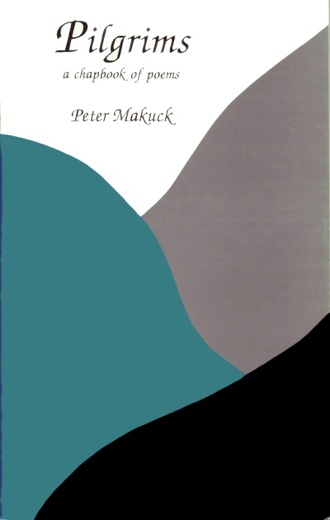Pilgrims
The landscapes of Peter Makuck’s poems are alive and rich with unexpected and graceful details–the “lucky shapes of houses,” the towplane that is “stubby as a bee,” the “bridge above the marshgrass fading / like a French cathedral . . . .” The poems in Pilgrims are haunted by two kinds of reality–the heaviness of mountains and cliffs on the one hand, and on the other, the figure reaching toward flight. Perhaps the central poem in this collection is “Hang-glider,” in which the pilot who “died all day and night” after colliding with the cliff is carried back down to the village, but is still felt as a presence that can “soar in our marrow and blood.” These poems are in no way simply trophies of travel. Rather they are the harsh, bright background for the pilgrims’ uneasing but loving investigations. It is a fine book
Mary Oliver, winner of the Pulitzer Prize, from her summary comment in choosing Pilgrims as winner of the Zoe Kinkaid Brockman Award for the best book of poems published by a North Carolinian in 1989
